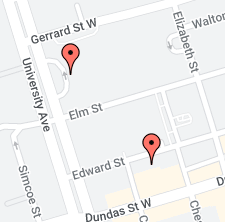The Hearing Process
In essence, our ears work to alter the acoustic stimulus that enters and move through our ear canals, into a form of neural code that our brains can decipher, process and comprehend.
Here are 6 basic steps to how we hear:
- Sound transfers into the ear canal and causes the eardrum to move
- The eardrum will vibrate with vibrates with the different sounds
- These sound vibrations make their way through the ossicles to the cochlea
- Sound vibrations make the fluid in the cochlea travel like ocean waves
- Movement of fluid in turn makes the hair cells The auditory nerve picks up any neural signals created by the hair cells. Hair cells at one end of the cochlea transfer low pitch sound information and hair cells at the opposite end transfer high pitch sound information.
- The auditory nerve moves signals to the brain where they are then translated into recognizable and meaningful sounds. It is the brain that “hears”.
Our hearing process truly connects us to the soundscape of our surrounding environment. Our hearing system provide us with an amazing ability to identify and comprehend the most minuscule acoustic cues. In fact, our brains are capable of storing the neural equivalents of acoustic patterns like music, voices, danger sounds, and environmental sounds. This similarity makes it much easier for us to recognize and process both familiar and unfamiliar sounds.
Hearing loss occurs when sounds that are typically loud become softer and less intelligible; this is a result of our brain being misled through a loss of audibility. Information also becomes distorted as it reaches the brain, disrupting the quality of our hearing.
Head trauma, neurologic disease, medical disorder or the process of simply aging, can result in alterations in the ability of the brain to process stimuli effectively. This can lead to symptoms that reflect hearing loss; such symptoms may include inattention, inappropriate responses, and confusion. Our brain works with our ears in an incredible way, processing neural events into our hearing and all that it involves.
What Happens When You Experience Problems with Your Hearing?
When your hearing is working as it should, signals and information are processed through various parts of the ear and go up the auditory nerve to the brain. When you’re experiencing problems with your hearing, determining which part of the hearing system is failing to respond is the first step to improving your health and quality of life. Union Hearing Aid Centre will schedule a hearing test for you at our Toronto Hearing Clinic. If you have questions or concerns regarding hearing loss, reach out to us today.



